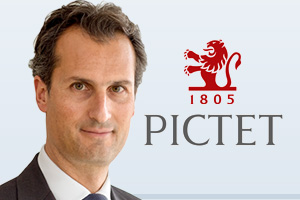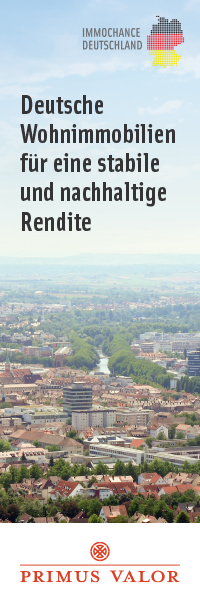
Im April 2020 konnten die globalen Aktienmärkte ein kräftiges Kursplus von über 10 Prozent verzeichnen und damit einen ganzen Teil der coronabedingten Kursverluste wieder egalisieren. In diesem freundlichen Marktumfeld generierte der Pictet – Global Environmental Opportunities P EUR (WKN A1C3LN, ISIN LU0503631805) eine Performance von +10,51 Prozent auf Monatsbasis. Pictet-FondsManager Luciano Diana analysiert für alle Investoren der FondsStrategie SJB Nachhaltig die neuesten Entwicklungen aus dem Bereich der Umwelttechnologie-Aktien. Der aktuelle Marktbericht per Ende April thematisiert die FondsPerformance, die Veränderungen im Portfolio sowie den Ausblick für die Aktienmärkte des Environmental-Sektors.
Market review
Global stocks ended April with a solid 10 per cent gain after a volatile few weeks that saw major indices suffer a brutal bear market. Investor spirits were lifted by signs of an easing of the pandemic, progress in the race to find a vaccine and continued monetary and fiscal stimulus. Wall Street delivered some of the biggest gains in developed markets, thanks in part to the resilience of big technology giants, which account for more than 15 per cent of the benchmark, the S&P 500 Index. Stock markets in emerging Asia, also home to major tech companies such as Tencent, Alibaba and Samsung, rose more than 7 per cent in local currency terms. Investors have become increasingly confident over the prospect of economic recovery in the region as China gradually restarts its engines after weeks of lockdown. Energy and consumer discretionary stocks recovered particularly strongly from an earlier rout as investors were attracted to their favourable valuations. The rise in energy stocks was all the more remarkable as oil prices slumped in the midst of a severe supply glut. Bonds underperformed equities, ending the month flat by and large. In credit, European high-yield debt rose by more than 5 per cent, reducing this year’s loss to around 10 per cent. US investment-grade and high-yield bonds also ended the month higher thanks to the Fed’s beefed up asset purchases programme.
Performance analysis
The fund marginally underperformed the world equity market during the month. The sector contributing most to performance was once again Dematerialized Economy, with software companies, such as Cadence, Synopsys and Autodesk, posting reassuring results and comments about the resilience of their growth during the current crisis. Pollution Control was also an outperformer, with Thermo Fischer, Ecolab, and Danaher announcing convincing Q1 results, leading the stocks to rebound strongly. Sustainable Agriculture & Forestry was the third positive segment, with West Fraser and Canfor rebounding from very depressed levels. Disappointing performance came form the the Water Supply sector, with Veolia and American Water Works. Building Efficiency was also a laggard, with Rational and Kingspan seeing clear negative effects of the COVID-19 crisis on their businesses. Other underwhelming performance came from Dassault Systeme in Dematerialized Economy and SGS in Pollution Control. With a few exceptions, results have been generally better than expected for Q1. Importantly, earnings downgrades for 2020 and 2021 have so far been materially lower for the stocks of our strategy than for the broad market.
Portfolio activity – overweightings & underweightings
We did not materially change the portfolio during the month. We exited one position, Trimble, which could see some weakness in the more cyclical, non-software parts of its business. We also made a few adjustments at the margin. We increased a few positions in Sustainable & Organic Food linked to Consumer Staples. We increased some potitions in Pollution Control with exposure to hygiene or the health care market. The weight of the Dematerialized Economy sector has increased over the month, mainly because of its outperformance. We reduced the water component company Xylem because of the impact of the COVID-19 epidemic on the water infrastructure business, and we trimmed Rational in Building Efficiency, because of its high exposure to the food service sector.
Market outlook
The fundamentals for our portfolio companies are solid. The secular trends of natural resource efficiency and pollution control remain strong despite lingering risks associated with global trade uncertainties and decelerating global manufacturing activity. The technologies and solutions that our companies offer remain in high demand because they contribute to cost-reduction initiatives and address changing consumer preferences. While portfolio valuation is slightly above its historic average, relative to global equity markets, we see upside from these levels due to strong fundamentals, in particular in dematerialized economy, environmental monitoring, waste management and pollution control.
Portfolio strategy
We believe that exposure to environmental trends can offer investors an attractive long-term risk-return profile. We focus on companies that play an active role in contributing to a cleaner environment and a less natural-resource-intensive economy. Our bottom-up investment process results in a concentrated global portfolio that is diversified across sectors and has a strong growth bias. Population growth, economic expansion and the rise of the global middle class are increasing the strain on natural resources. Pollution is becoming a widespread political issue, particularly in developing countries where environmental awareness is rising. With public opinion on environmental policies becoming increasingly favorable, we believe that companies providing solutions to resource scarcity and pollution challenges will experience increasing demand for their products and services. A globally diversified portfolio that benefits from such opportunities should outperform the broader market.
Pictet – Global Environmental Opportunities Management Team
Luciano Diana
Gabriel Micheli
Yi Du








